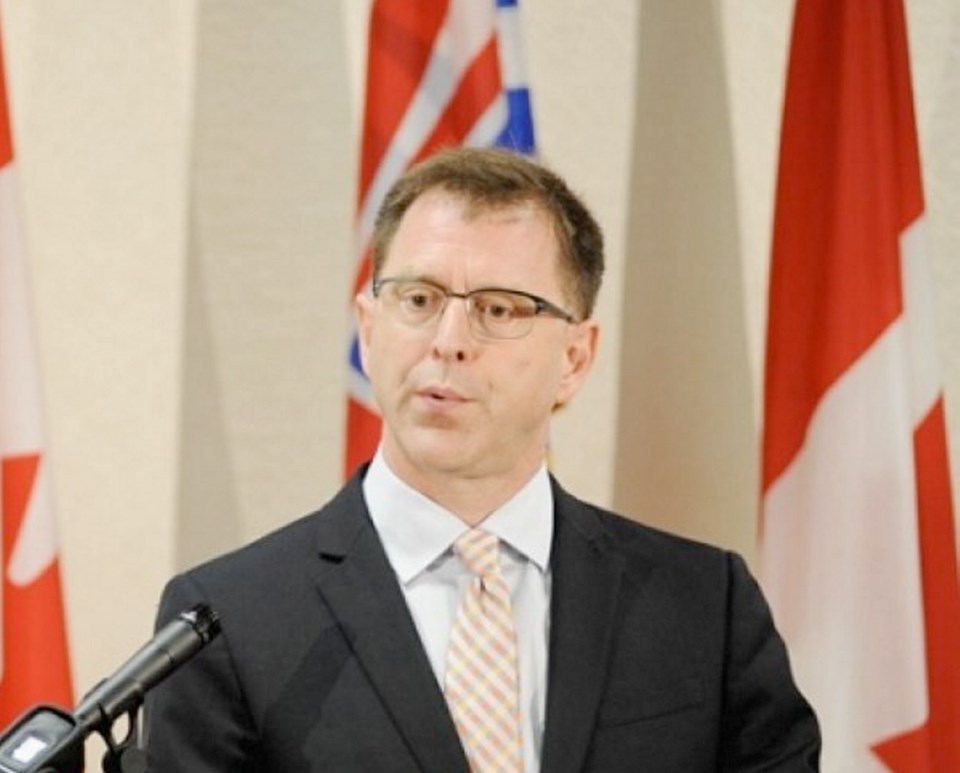Major barriers to the recruitment of Canadian-trained care aides to B.C. will be removed as of January in an effort to help improve seniors’ care, Health Minister Adrian Dix said Wednesday.
Care aides will no longer need to live in B.C. before applying to the B.C. Care Aide and Community Health Worker Registry — a list of working or available accredited health-care aides ready to work for publicly funded employers in B.C.
“You can apply from wherever you are in Canada,” Dix said.
Also, qualified and experienced care aides trained in Canada who apply to the registry will no longer be required to go through the Nursing Community Assessment Service, so they can begin work in B.C. “more easily and more rapidly,” Dix said. They will also avoid the assessment and remedial education fees.
The “well-intended” assessment process was established in the fall of 2016 to ensure that B.C. maintains its safety standards for seniors, but inadvertently became a barrier for experienced workers who wanted to work in the province, Dix said.
Once out-of-province Canadian-trained health-care aides who qualify under the registry are employed in B.C., they will be immediately enrolled in a standardized orientation program delivered by their employer, as of Jan. 15. It will continue to ensure that health-care assistants from Canadian provinces and territories meet the province’s standards of providing care, Dix said.
About 24,600 health-care aides — also called health-care assistants, community health workers and personal support workers — are employed by health authorities and affiliated employers in B.C. Care aides provide personal support services in homes, assisted living and long-term care facilities for seniors, people with disabilities and those with acute or chronic illnesses.
“Care aides are not just important — care aides are essential,” said Dix. “They are some of the most important people in our health-care system, which I would argue is some of the most important work that anyone does in society, and the moment a family member is in long-term care you understand that.”
The province needs 900 new care aides to help meet its goal of 3.36 direct-care hours per resident per day, on average, across all health authorities by the end of 2020-21. That number of hours was recommended in a 2012 investigation by the Office of the Ombudsperson into seniors’ care in the province.
To help fill those positions, the Health Ministry has earmarked about $2.26 million in funding over the next three years for Health Match B.C., a free health-professional recruitment service funded by the province, to implement a three-year recruitment strategy for health-care aides.
About $1 million will go to a bursary program phased in over three years to help about 1,200 eligible international health-care aides with costs associated with registration, assessment and remedial education. Another $700,000 will be directed to a recruitment campaign, including a website launched last month, and $555,000 for administrative costs, including a career consultant for health-care aides.
Jennifer Whiteside, secretary business manager for the Hospital Employees’ Union, representing 15,000 care aides, said workers want staffing shortages and safety issues addressed.
“What it means when there’s not enough hands on deck, it means there’s less time to get residents up, to get them dressed, to get them to the dining room, or to engage in other activities,” said Whiteside. “It means fewer baths.”
The changes will provide a more direct route for care aides trained elsewhere in Canada to work in B.C. while respecting high standards for training established here, she said.
Daniel Fontaine, CEO of the B.C. Care Providers Association, said he’s “very convinced” the changes “will go a long way in helping to resolve our health human resources issues here in B.C.”
“These reforms, as the minister indicated, will eliminate barriers, they’re going to reduce red tape, they’re going to lower costs for care aides who want to work in British Columbia, and they’re going to increase labour mobility,” Fontaine said.
“But most importantly, the reforms announced today mean that when a senior needs that care, that care will be there for them when and where they need it.”
The Health Ministry announced last month it would spend $3.64 million over the next two years to create 418 more training slots for health-care assistants in 14 post-secondary institutions in B.C.
In all, the province said it is investing about $1 billion over three years to improve care for seniors, including $240 million over three years to increase staffing in long-term-care homes.



